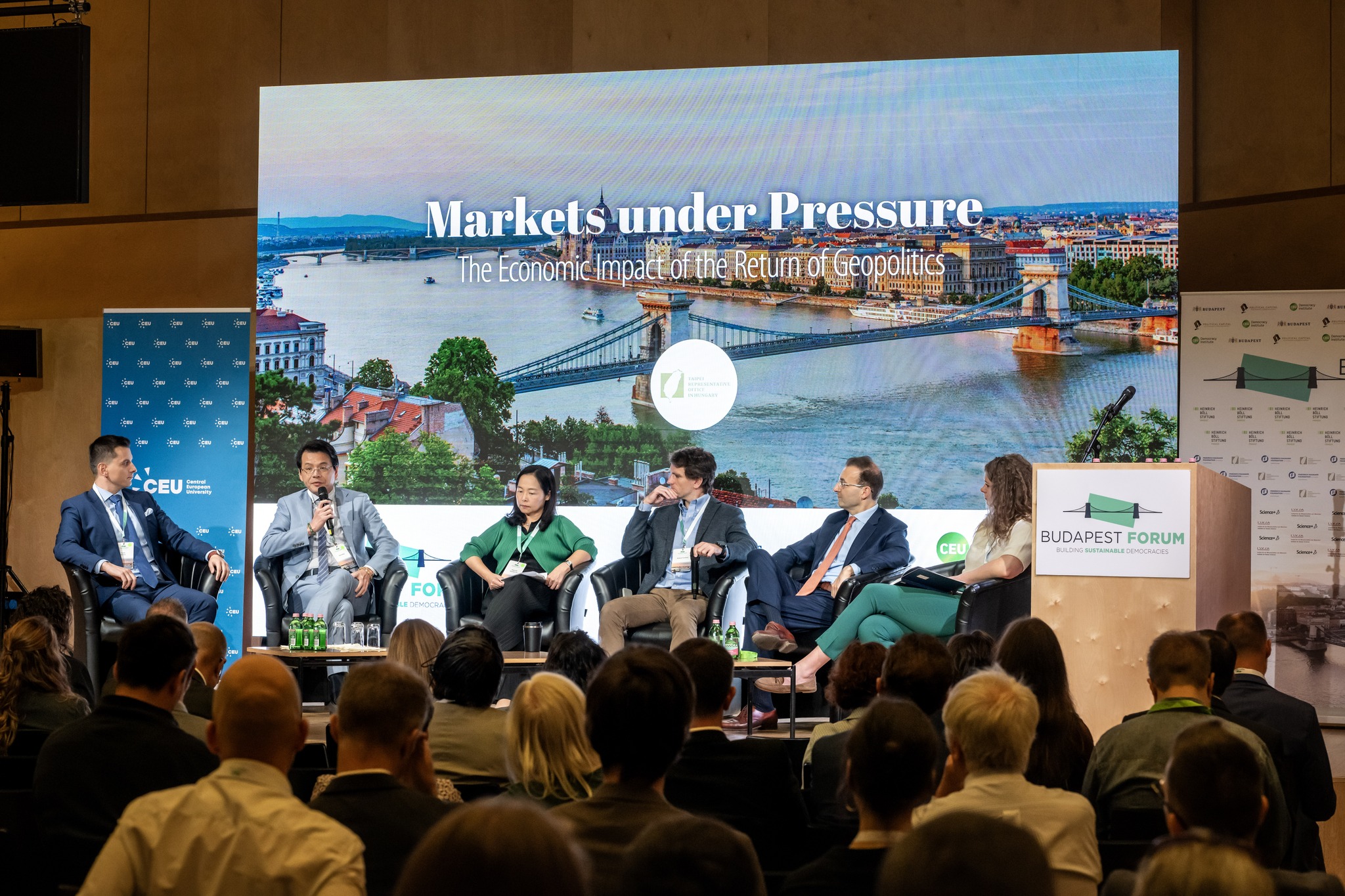Markets under pressure: The economic impact of the return of geopolitics
2025-09-24
Panel summary: ‘Markets under pressure: The economic impact of the return of geopolitics’ at Budapest Forum 2025.
Participants
Ming-chin Monique Chu – University Lecturer, University of Southampton
Tamás Matura – Associate Professor, Corvinus University of Budapest
Krisztián Orbán – Founder and Managing Partner, Oriens
Richárd Turcsányi – Program Director, Central European Institute of Asian Studies
Elliot Wang – Representative, Taipei Representative Office in Hungary
Moderator: Lili Takács – Journalist, 444

Main takeaways
- Geopolitics has re-emerged as a central force on the global stage, largely because the United States is no longer the sole guarantor of international stability. The rise of China under Xi Jinping and Russia's aggression in Ukraine clearly demonstrate that the established international rules are being challenged and that new powers are actively forging alternative systems.
- China is increasingly transitioning from a "rule-taker" to a "rule-maker." Through its industrial policies, export controls, and global initiatives like the Belt and Road Initiative, it aims to expand its influence. Taiwan is a critical point in this competition, not just due to sovereignty disputes but also because it produces the vast majority of the world's most advanced semiconductors, making it strategically vital to the global economy.
- Europe faces a difficult dilemma. It remains reliant on the United States for its security but is heavily dependent on China for trade. In recent years, the EU has begun to re-evaluate this relationship, framing China not merely as an economic partner but as a systemic rival. This shift was accelerated by the COVID-19 pandemic and Russia’s war in Ukraine, which exposed critical vulnerabilities in global supply chains and energy security.
- The global economic order is also undergoing a fundamental transformation. The United States is increasingly using economic tools like tariffs and investment demands as instruments of national strategy. At the same time, China is focused on exporting its industrial overcapacity and strengthening its position in key technologies. Concurrently, Beijing’s international image has suffered setbacks, particularly in the West, due to its policies in Xinjiang and Hong Kong and its handling of the pandemic.
- Looking ahead, Europe must prioritize enhancing its industrial and defence capabilities while also making significant investments in education and innovation as long-term safeguards. To restore confidence in its democratic institutions, Europe needs to demonstrate credible solutions that address the everyday concerns.
This panel discussion was co-organized with the Taipei Representative Office in Budapest.
Explore all the panel discussions from Budapest Forum 2025 here.
Copyright 2026. Political Capital Policy Research and Consulting Institute, all rights reserved.

